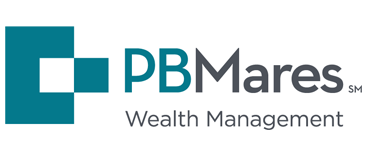An often-overlooked financial asset may be buried in your safety deposit box right now! That’s right, it’s time to take a look at those long-forgotten physical stock certificates gifted to you by Great Aunt Gertrude in 1972. If you have been lucky (and patient) enough to hold on to these physical stocks, kudos to you! But be forewarned: continuing to hold on to these may have “Headache” written all over it, especially for your executor and/or heirs.
How are your assets ‘passed on’?
In order to explain, let’s take a look at some basic estate planning. At your passing, all of your assets must be distributed. There are two ways to ‘pass on’ your assets. One is through what is known as ‘operation of law’, the most easily recognizable beneficiary designations. You most often see these on your retirement accounts and life insurance policies. Individual assets may also contain beneficiary designations (you can request your Individual brokerage account have Payable-On-Death or Transfer-On-Death designations). Bank accounts are increasingly offering these to their customers as well. Several states also allow for deeds to contain TOD designations. While it is outside the scope of this article to discuss the implications of establishing a Revocable Living Trust, having a properly funded one also avoids probate.
This brings us to the other way of ‘passing on’ your assets: the Court System can help facilitate the distribution of your assets through a process more commonly referred to as probate. In some states, probate court can become costly. Currently, in Virginia, fees are assessed as a tax at the rate of $.10 per $100 on estates valued at more than $15,000. There is no tax for estates valued at less than $15,000¹. This is relatively inexpensive, but the bigger headache is the time involved in settling your matters. Timing differs based on the complexity of your estate but your executor/heirs should expect probate to take anywhere from six months to a year.
The good news is probate can be avoided with proper planning.
In Virginia, if the total of all assets that would otherwise have to go through probate is less than $50,000², your executor may file a ‘small estate affidavit’ and they could avoid the hassle of the formal probate process (and the time involved with it). Adding beneficiaries, TOD designations, updating your deed (if possible), or potentially funding assets in a Trust may help you avoid probate altogether.
Managing paper stocks in a digital era
In the pre-computer era, all stocks were printed on paper and distributed to their respective owners for safe keeping. As technology has increased and electronic forms of stock ownership have eased companies’ administrative burden of dealing with paper, the age of physical stock issuance has waned. In today’s era there are generally two ways to own stock. You can reach out to the company you wish to purchase and they may refer you to a ‘transfer agent’. You may have heard of Computershare or AST-American Stock Transfer & Trust Company. These are popular transfer agents who provide investors with a direct way to hold company shares. Alternatively, you can establish an account with a custodian and purchase shares through them (think Fidelity or Vanguard).
The headache of dealing with paper stocks
Unless your paper stocks are owned by your Trust, they will most likely have to go through probate (because paper stock does not contain beneficiary provisions). This presents many obstacles for your executor.
- First, they will have to find your stocks.
- Second, they will have to do research as to where that particular company now holds their direct offerings (googling the company’s name and “investor relations” will usually yield results that will put you in the right direction).
- Next, they will have to work with each company to provide them with the forms necessary to prove you are no longer alive. A transfer agent will not take the executors word that your heir is the rightful one, so they will require documents from the courts and will eventually name your estate as the owner.
- At this point, the probate courts will take over and eventually (through a reading of your will or through state intestacy laws) transfer ownership to your beneficiary.
- An additional nuance that seems to be prevalent with old stocks is the fact that the company may no longer be around. They may have merged or been acquired by another company. It will take considerable effort on the part of your executor to figure this out.
Take steps now to alleviate the burden.
This is not to say it won’t be a headache for you, but taking steps while you are still alive to transfer your physical stock to electronic will take a considerable burden off of your executor. Not only that, if you are able to transfer your physical stock while you are alive, you may also be able to retitle said stock so that it avoids probate.
Now might be the perfect time to clean out the safe!
Questions? Contact PBMares’ Wealth Management team today.
¹ VA Tax Code § 58.1-1712-1718 ² VA Tax Code § 64.2-601
About the Author:





